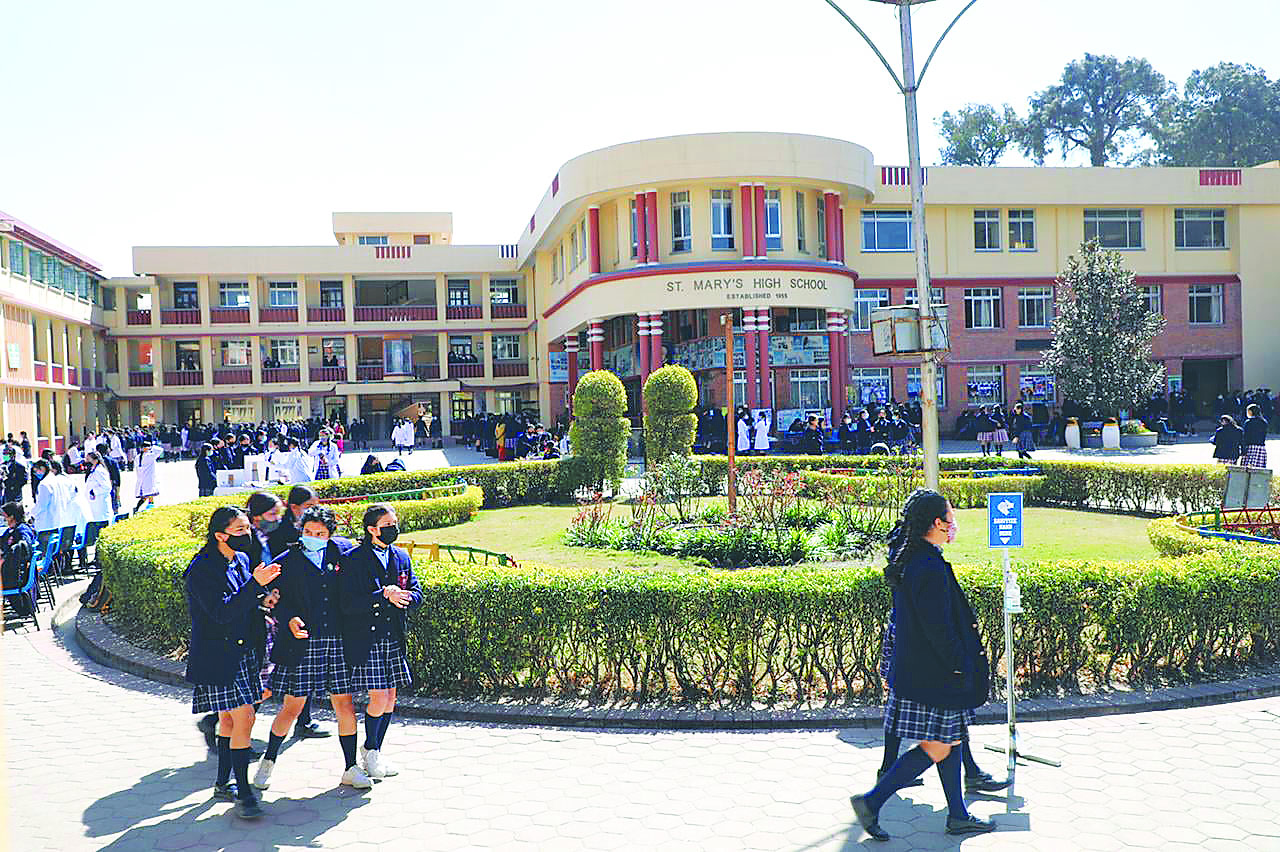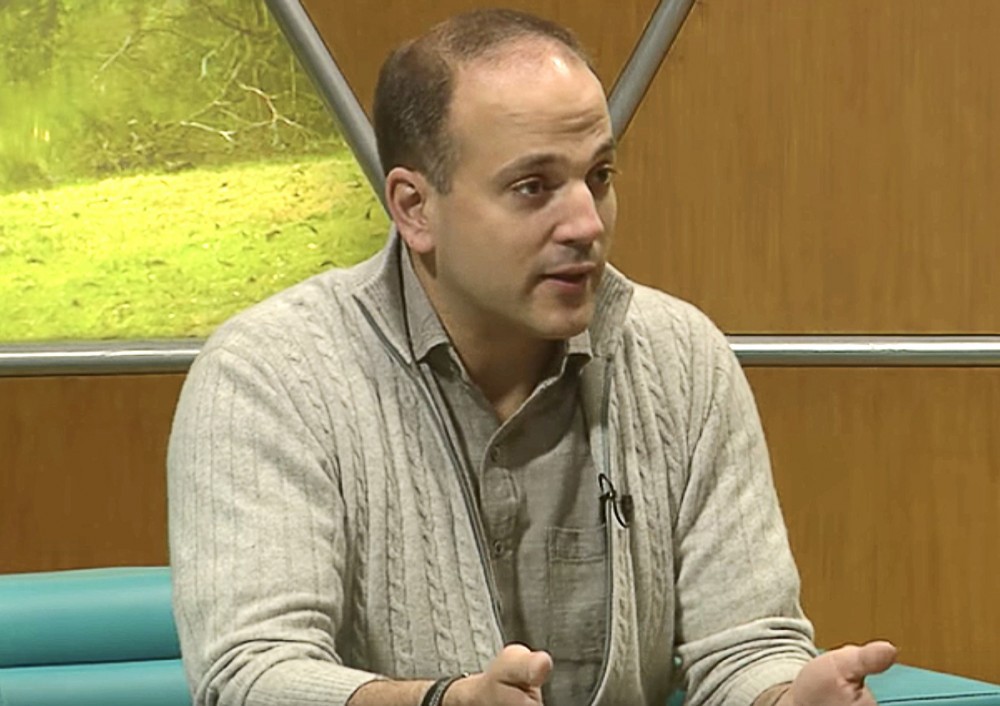Investigations
Inside the ugly world of Nepali restaurants in Finland
Nepali workers say if anyone goes to the police or authorities to complain about working conditions, the owners would make it difficult for them to find work again in any Nepali or South Asian restaurant.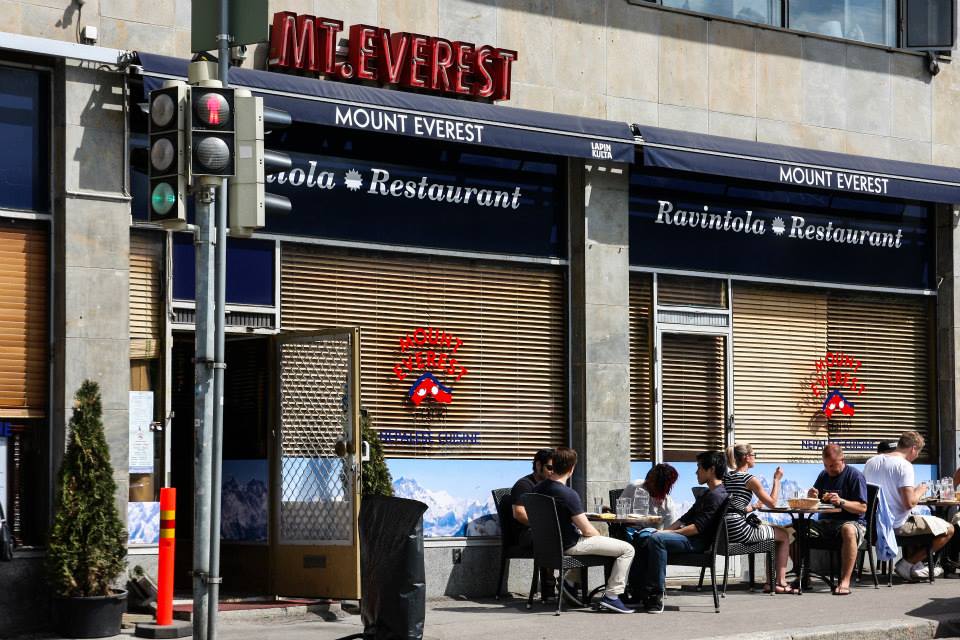
Paavo Teittinen
Editor’s Note: In March, Finnish newspaper Helsingin Sanomat published an investigation into the deplorable working conditions in Nepali restaurants. The Kathmandu Post is publishing a translated version of the full article, which is syndicated from the Sanomat.
***
After months of working without a break, Suman finally got his first day off. That meant he only had to work for seven hours, as opposed to the average 13 hours he was pulling daily.
Suman’s shift would begin in the morning, around nine, and end after the restaurant closed at ten at night. Sometimes, the workload would go up to almost 80 hours a week, with Suman working 16-hour days on the weekends and holidays.
But for all his work, Suman didn’t get any actual compensation. Every now and then, small sums of money were transferred to his account. The contract wage was paid to his Nordea account, but the account was controlled by the owner. Suman said he didn’t see a penny of the payments.
Suman and two other men worked as cooks in the popular Nepali restaurant, Mount Sherpa, in the centre of the Finnish town of Kuopio.
For a year and a half, Suman tolerated the exploitation. Then, when he’d had enough, he walked to the police station in Kuopio.
That was two and a half years ago. Last December, the Pohjois-Savo District Court sentenced the owner of Mount Sherpa, Purna Adhikari—for three counts of aggravated tax fraud, two counts of accounting offences and three counts of human trafficking—to conditional imprisonment of a year and eight months.
According to the court, the restaurant’s working conditions had gravely violated Finnish law and the owner had taken advantage of the workers’ vulnerable positions.
The conviction was rare, but such exploitation is much more common in Finland.
An investigation by Helsingin Sanomat has revealed that many Nepali restaurants, favoured by Finns, routinely have cooks working shifts that can extend up to 16 hours. Workers coming to Finland have to pay for their jobs, and compensation for their work is often minimal. Over the span of five months, the Helsingin Sanomat interviewed 19 Nepalis and one Indian, 15 of whom work or have worked in Nepali restaurants. They recounted experiences from over 10 restaurants, over many years, from different parts of Finland.
The Nepalis spoke on condition of anonymity because they were afraid of losing their jobs and consequently, their residence permits. Some are worried about their own as well as their family’s safety.
Three of the workers are in the assistance system for victims of human trafficking, a Finnish government body that helps people who have been exploited.

Stories of exploitation
The stories that the Nepalis tell are alike in many respects.
Similar events and practices show up time and again: cooks are made to work an enormous, or at the very least illegal, amount of hours, and the payment is nowhere near that stipulated by official work regulations.
One cook told the Helsingin Sanomat that he had worked every day for 14 hours, with no days off, since arriving in Finland around five years ago. The job paid no extras or overtime, and after taxes, he earned less than 1,000 euros (about Rs 125,000) a month. About half of that sum went to the restaurant owner to pay off the cook’s debt.
“When I complained about the conditions, the owners threatened to send me back to Nepal,” said the cook.
Another cook said that for a year, he worked for 13 hours a day and was paid a few hundred euros a month. He lived in an apartment owned by the restaurant owner and his income was so small that he saved money by washing his hair with dishwashing liquid.
Almost all the workers who spoke to the Sanomat said that they had to pay the restaurant owners to be able to come to Finland. The sums they paid range from around 5,000 euros to over 15,000 euros.
One Nepali cook said that he had to sell his assets in Nepal in order to be able to come to Finland. Many told of borrowing money in their home country from relatives. Some could not afford to pay, so they agreed to work in Finland for free.
Their working conditions are dire. Workers often sleep in crowded apartments with other cooks. One Nepali man interviewed by the Sanomat shared a two-bedroom apartment with six other cooks.
Several workers from different cities told the Sanomat that the owner confiscated their passports. Many say that they are forced to work even if they become sick or have injured themselves. The Helsingin Sanomat corroborated the workers’ stories by examining police investigation material, court documents, bank statements, private messages, official documents and other items.
The Sanomat also interviewed officials from the police department, the Regional State Administrative Agency, the assistance system for victims of human trafficking and Victim Support Finland, an NGO focused on helping victims of crime, among others.
The Nepali workers themselves wanted to speak of the abuse, and reached out to the Sanomat in the hope that government officials would tackle the problem. One Nepali interviewed for this article said they wondered how the exploitation has gone on for so long. Another, who has worked for years in the kitchen of a Nepali restaurant, said that many cooks are still in a very difficult situation.
“We hope that the Finnish government will intervene. This is systematic criminal activity,” said the worker.
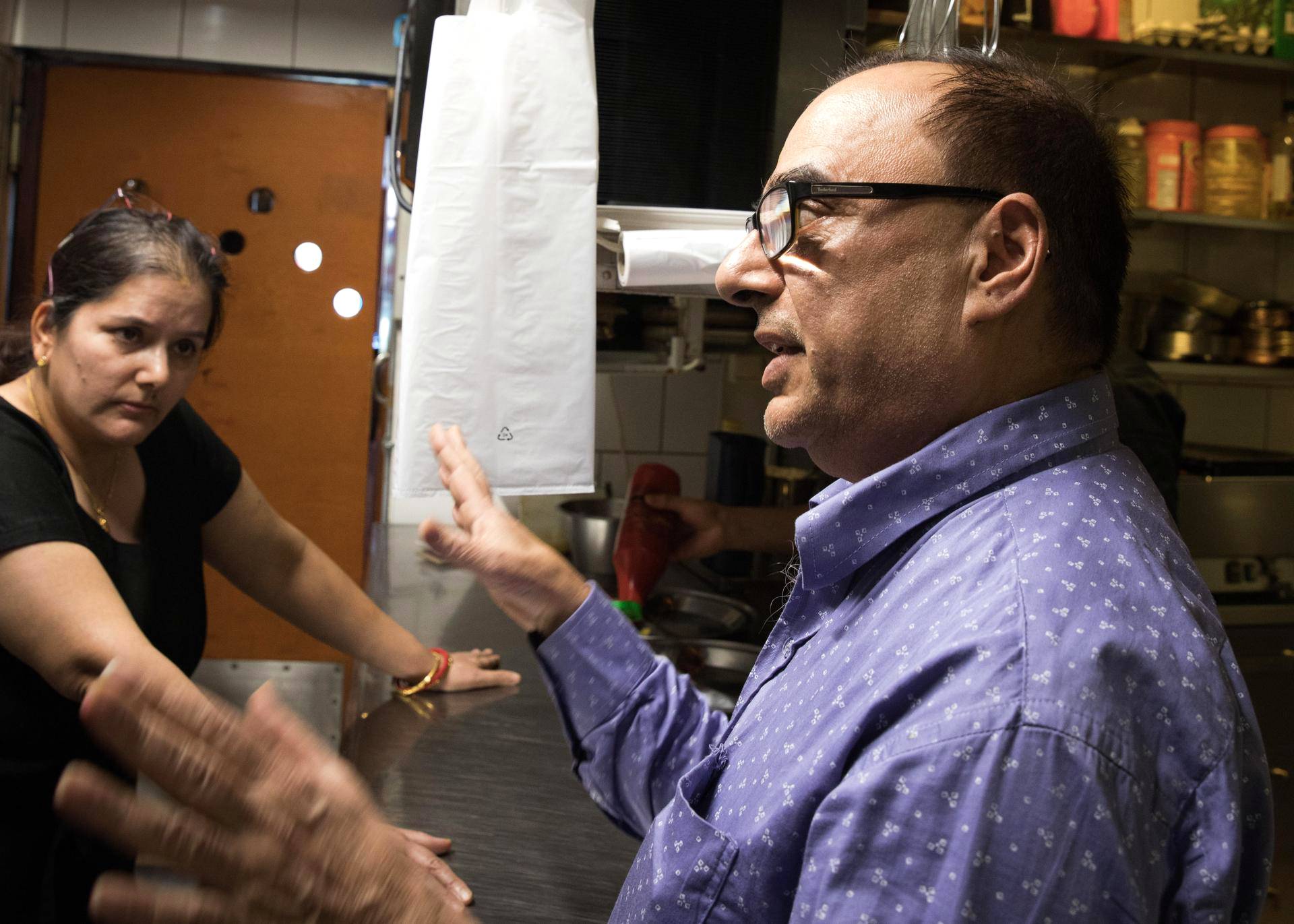
Restaurant pioneers
The density of Nepali restaurants in Finland is higher than in any other Western country. In metropolitan areas alone, there are around 50 Nepali restaurants. The lion’s share of the large, well-known restaurants is owned by a group of roughly 30 Nepali businessmen, the majority of whom are from the same place in Nepal—Gulmi. They are closely related and have financial ties.
The first Nepali restaurant in Finland was founded in 1993 in Kallio, a neighbourhood of the capital Helsinki. It was called Himalaya and the founder was a man named Devi Sharma.
Devi arrived in Finland in the 80s, together with Hemraj Sharma. Both were around 30 at the time and hailed from Gulmi district in western Nepal. In Finland, the Sharmas initially worked in the restaurant business and then decided to become entrepreneurs themselves. Today, the duo owns numerous restaurants in Finland’s capital region.
At one point, both Devi and Hemraj had worked in India, which is why the food in these Nepali restaurants, in many respects, is really representative of food from the Punjab region.
“At first Finns shied away from the spiciness of Nepali food, but after a while, they warmed up to it,” Hemraj told the Helsingin Sanomat in February, recalling the early days of the restaurant boom.
Devi and his wife Manju control the restaurants Himalaya, Lali Gurans, Gurkha and Yeti Nepal, while Hemraj runs the Mount Everest restaurant chain. Both Devi and Hemraj present themselves as pioneers of the Nepali restaurant boom in Finland.
However, the Nepali workers interviewed by the Sanomat paint the two businessmen in a darker light. Most workers unanimously named Devi as the central figure in a network of Nepali restaurant owners, which one Nepali who has observed the restaurant owners referred to as a “cartel”. Others speak plainly of the owners. Hemraj is considered the second-most influential businessman in the network.
Another crucial spoke in the wheel is Ram Aryal, owner of the Satkar restaurant and a cousin of Hemraj Sharma. Aryal arrived in Finland after Devi and Hemraj, but all three are from Gulmi.
One Nepali cook called them “the three roots” because they were the first to come to Finland. Devi and Hemraj, and later others, brought in relatives from Gulmi to work in their restaurants. After that, they brought in relatives of relatives, and then other Nepalis.
Last year, in an interview with a Nepali TV channel, Devi claimed that he had brought a total of 1,500 Nepali workers to Finland. The Sanomat couldn’t independently confirm the figure, but Devi has certainly brought hundreds of Nepali cooks to Finland over the years. Many of his workers later went on to set up their own restaurants, for which more workers were brought in from Nepal.

Trafficking people
In the course of its reporting, the Sanomat learned that the Helsinki Police Department has been investigating Devi and Manju Sharma for human trafficking. The police probe, which has been ongoing for around two years, is tied to the conditions of a person who worked in Devi’s restaurant and home.
Devi Sharma confirmed the investigation, but both he and Manju say the accusation is baseless. In an interview with the Sanomat, Devi said that the reason for the investigation is that his former housemaid has been “talking crap.”
“This is not true,” he said. “I have worked here for a long time as an entrepreneur and brought in many workers. I am the number one Nepali taxpayer in Finland. This is just jealousy.”
But Nepali workers who spoke to the Sanomat said if anyone goes to the police or authorities to complain about working conditions, the owners would make it difficult for them to find work again in any Nepali or South Asian restaurant. One Nepali, who has observed the restaurant business in Finland for years, said that the owners exchange information frequently. “If you speak to the police, you will become an outcast in the eyes of the cartel,” said the person.
Because he went to the police, Suman said that it’s impossible for him to get a job in a Nepali or South Asian restaurant. “The owners act like a mafia,” he said. “They are related and they assist each other in exploiting people.”
Devi, for example, owns the restaurants Gurkha and Yeti Nepal with his inner circle. Hemraj’s brother owns the restaurant Mount Everest Nokka, and the deputy board member of the company is Ram Aryal.
In interviews with the Sanomat, Finnish police officials said exploitation in the restaurants is a familiar phenomenon. Detective Chief Inspector Minna Immonen of the police department of Eastern Finland, who was in charge of investigating Suman’s case, said she has been investigating human trafficking cases for nearly two decades.
According to Immonen, the restaurant owners can threaten workers and their families back in Nepal, sometimes in brutal ways. According to a statement given by one cook who was accepted into the assistance system for victims of human trafficking, a restaurant owner told them that it is easy to kill a person in Nepal.
“According to your statements, the employer has told you that they have the means to pay someone 50 euros to stab a person in Nepal,” the assistance system’s record said.
Some Nepali workers told the Sanomat that their employers often sent them to work for an owner of a different restaurant. One cook was even sent to an entirely different city.
According to Immonen, the restaurant owners often make recruiting trips to Nepal. With the help of social media, family relatives and other networks, new recruits are constantly brought to the country after the owners make a deal on how much the recruits have to pay to get a job in Finland.
For some people, the owners paint a false image of what life in Finland will be like, said Immonen. The first year’s salary can be agreed to be less than 1,000 euros a month, with a substantial raise the second year. But often, these promises are never kept.
“Others might be told that if you work for a few years as a type of slave,” Immonen said, “you can set up your own restaurant and exploit others.”
A few years ago, the cartel-like activity of Nepali restaurant owners came under the radar of Victim Support Finland, the Finnish NGO helping victims of human trafficking and other crimes.
“Our clients find it very difficult to become re-employed if they have filed a claim about their employer,” said Pia Marttila, a senior advisor at the group who specialises in human trafficking.
At the moment, Victim Support Finland has 11 Nepali clients.
Devi and Manju admit that if another owner needs advice on running a business or hiring a worker, they will help. They, however, denied that the owners coordinate when it comes to the treatment of workers, working conditions, recruitment or other activities.
“It’s the same thing in Finland. A Finnish company will check if a person is trustworthy,” said Devi. “When I worked at Elanto, the restaurant chiefs would call to ask if they could trust me. This happens among Nepali restaurants too.”
But Devi repeatedly denied that exploitation took place in his restaurants.
“If the owner doesn’t pay the worker, why does the worker go on for six years in the same place instead of quitting after a few months? Why doesn’t he go directly to the police?” he said.
Hemraj Aryal also denied coordination between restaurant owners. Both said that they have never heard of owners blacklisting workers who have tried to improve their working conditions.
Hemraj and Aryal said that they had read about cases of exploitation from newspapers at some point, but other than that, the phenomenon wasn’t familiar. All three owners said that their restaurants adhere to the law and collective bargaining agreements.
But the biggest fear for many Nepali workers is not finding work in Finland—they are more concerned that they might have to return to Nepal. Suman eventually managed to land a job at a Finnish restaurant, but he’s afraid that one day the work will end and he will have to return home. This fear, officials say, is the biggest reason the exploitation stays hidden.
The workers, particularly the cooks, receive a Finnish residence permit on the basis of having a job in Finland. Becoming unemployed for a long period means the worker might have to leave the country. To acquire a permanent residence permit, a worker typically has to wait for five years.
For workers who have brought their families to Finland, their position is even more vulnerable because sustaining a family in the country requires a certain level of income. The condition of some workers is so bad that they can’t even seek help.
“Some don’t speak a word of Finnish and don’t know anything about the country. Others are afraid of the police. Some can’t even write or read,” said one Nepali worker.
The workload for many restaurant workers is so heavy that attending language classes is impossible, and the owners try to prevent them from going to these classes. One worker said that his employer changed his work shifts after hearing that the worker intended to attend a Finnish language class during his free time.
Some workers don’t want to speak of exploitation because the perpetrators are their own relatives. Despite the miserable conditions they are forced to work under, some cooks said they feel a sense of gratitude toward the owner for bringing them to Finland.
One person interviewed by Helsingin Sanomat said that the owners brought in their relatives as workers precisely because they knew they would not talk to the police. Some workers said the owners have also spread rumours in the community that the police and Victim Support Finland are on their side.
Devi’s restaurant Gurkha and Hemraj’s restaurant Mount Everest have bought notable advertisements in the official magazine of Victim Support Finland. The magazine is a professional publication, the advertisers of which are mainly law firms as well as labour and industry interest groups.
The owners then presented the magazine ads as proof of cooperation with the authorities, the Nepalis said. Victim Support Finland itself has expressed concerns that the ads have been used to influence the workers’ decision to seek help.
Devi said that neither he nor the restaurant’s other owner knows what the Gurkha advertisement is about. The other owner, however, said that the advertisement salesperson called him and he wanted to support the magazine.
At first, Hemraj said that he is not aware of any advertisement, but when the Sanomat showed him the advertisement, he said that it had been “bought accidentally”.
Devi, Hemraj, and Aryal also said that their workers are able to move freely and study Finnish. They denied any kind of attempt to insulate their employees from assimilating in the Finnish society.
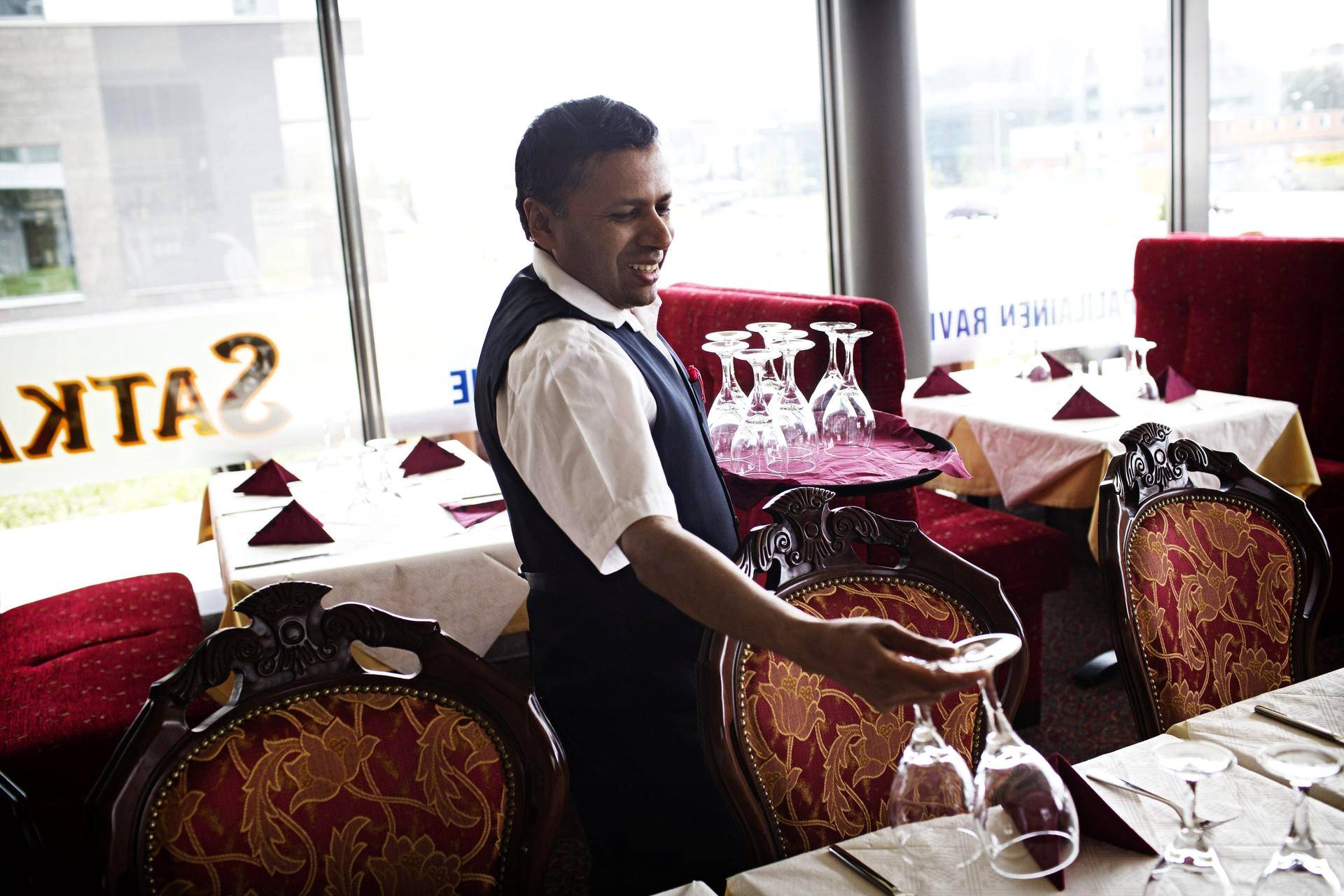
Exporting labour
Of Nepal’s 30 million residents, around 3.5 million work abroad, primarily as construction workers and housemaids in the Middle East and Malaysia. Over the last seven years, 260 Nepali restaurant workers have come to Finland, the vast majority of them cooks, most of whom are from Gulmi district.
”People come here for a better life,” said Suman, who worked in the Kuopio Mount Sherpa restaurant.
With their entire family settled permanently in Finland, the workers described the possibility of quitting their onerous jobs as cooks and live on government-funded social security. One Nepali worker said that he tolerates the exploitation so that his family can have an education and a good life in Finland one day.
Suman worked in Nepal as a cook and an accountant. He said he was lured to Finland with the promise of a better life by the brother of the restaurant owner convicted for human trafficking. The owner had promised Suman that if he worked for a year from morning to night with no compensation, he would eventually get a shorter work week and a salary.
Suman was cheated and his story is hardly uncommon.
Everything begins with first bringing the worker to Finland. Once a cook has been recruited, they are interviewed at the Finnish embassy in Kathmandu for the residence permit. The Sanomat saw instructions for Suman’s interview, drafted by the restaurant owner in Kuopio. One of the points states that the worker must deny having to pay for the job if the embassy officials asked them.
But some close relatives notwithstanding, every Nepali who wants to come to Finland as a restaurant worker has to pay the owners, according to cooks who spoke to the Sanomat. “Almost no one has come here who hasn’t had to pay,” said one cook who still works in a Nepali restaurant. He said he paid the restaurant owner over 15,000 euros.
Sometimes the money is agreed on the basis of credit. In these cases, the worker must work for no pay until the debt has been settled. That is what happened in Suman’s case, too. He agreed to the arrangement because he could not afford to pay the over 10,000 euros demanded by the owner, he said.
Documents seen by the Sanomat shows that a cook who came to Finland paid a restaurant owner thousands of euros in Nepal. One cook’s bank records, also seen by the Sanomat, showed a payment of over 5,000 euros soon after the cook arrived in Finland, made to a person dictated by the restaurant owner.
The Sanomat saw messages that corroborate the workers’ stories. In one message, a cook asks the owner of a restaurant in Vantaa, called Sagarmatha, whether a sum equal to around 10,000 euros is sufficient. The owner, a woman, responds saying she doesn’t want to discuss the matter in writing. The police department of Eastern Uusimaa is investigating possible exploitation in the case. The owner has denied any wrongdoing and said she has not demanded any money.
But the exploitation doesn’t end at demanding money. Nepalis told the Sanomat that the working conditions for the cooks and servers are worse in the first years. “After arriving here, I had no off days. I worked for 14 hours every day for a year,” said one cook.
Another employee said that he worked for 300 hours a month with no days off for two years. The man was employed in Devi Sharma’s Himalaya restaurant in Helsinki’s Ratakatu.
Devi Sharma denied the allegation and said the work shift is around eight hours a day and the salary is in line with the collective bargaining agreement.
Contracts for Nepali workers regularly state a salary of around 1,800 euros before taxes. But one Nepali cook said that he had to transfer part of his wage back to the employer. Some cooks said they don’t get paid at all while others said they get a few hundred or thousand euros now and then.
According to the District Court, Suman’s former employer stole a total of 58,000 euros in his wages and additional money. The employer even took control of the worker’s bank card and internet banking codes. Suman’s restaurant owner’s wife used his bank card to purchase items from a children’s store, among other places.
Even for the workers who received their salaries based on the contract, the hourly wages can be very small because the workload can be up to 300 hours a month, according to some Nepali workers. This, they said, is the most common form of exploitation.
The salary figures are in stark contrast to what is the norm in Finland’s restaurant industry. For example, a cook working 250 hours a month should earn 3,637 euros a month, based on the collective bargaining agreement. Many Nepalis interviewed by Sanomat had worked longer hours and earned at most 1,800 euros a month. Sundays, overtime and other extra compensation are usually not paid according to regulations, or even paid at all.
The Sanomat asked one Nepali cook to dissect his work week in Devi’s Himalaya restaurant. According to the cook, his workload extended to over 300 hours a month, but he was paid less than 1,800 euros. According to the calculation, as mandated by the law, the cook should have been paid 5,571 euros.
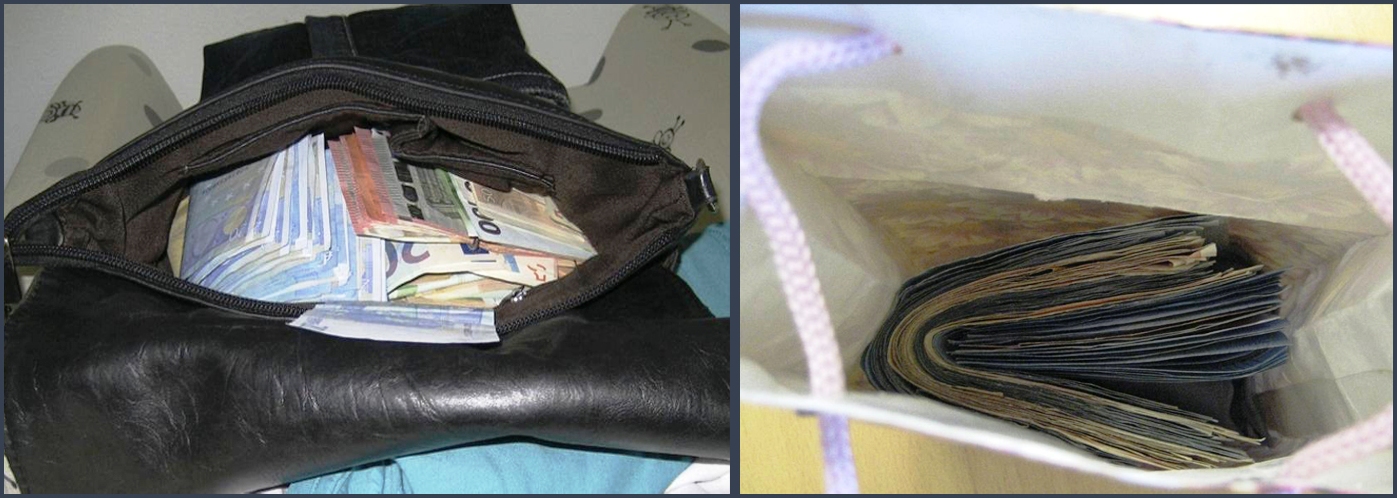
Following the money back
The Sanomat’s investigation also shows that a sizeable grey economy surrounds restaurants that reap large profits on the back of exploiting workers. Many Nepalis said they have witnessed with their own eyes how a large chunk of the money from Finland flows back to Nepal.
A Nepali woman who worked in Devi Sharma’s restaurant and home told the Sanomat she regularly saw him handle large quantities of cash and lunch vouchers.
The woman, who has been living at a secret address because her case is still under investigation, said Devi kept stacks of cash bound by a rubber band in a metal box. Once a month, the money was taken out, spread on a bedsheet and counted.
Every month, she helped Devi count the profits collected from the restaurants, she says. She wasn’t allowed to touch the cash, but she counted the lunch vouchers and watched as Sharma counted the currency. She estimated that the number of euro bills could amount to well over 10,000 euros a month.
Devi denies that he was handling cash in the manner the worker had described.
Many Nepali workers said that during lunchtime, only the owners and their inner circle are allowed to work the cash register. Cash and lunch vouchers are not registered, or the register is later corrected so that previous sales are struck out.
One Nepali cook said that he saw bags of cash being carried from a restaurant in Southern Finland to the owner. According to him, the money can amount to over 1,000 euros on a good day and a few hundred euros on a bad one.
The employees say that the cash is hidden in the restaurant, from where it’s taken to the owner’s home. Although, after the human trafficking case in Kuopio, the practice has changed, at least in some restaurants.
“Now the money is taken to a relative’s place because the owners know that a dog was used in Kuopio,” said one Nepali worker, referring to a detection dog used by the police to find money in the case of a restaurant owner convicted for human trafficking.
According to the police investigation, 4,865 euros were discovered between the bed and the mattress, while 5,975 euros were found in a leather bag, 7,000 euros in a fabric bag and 2,125 euros in a bag draped in images of flowers. At the bottom of a cardboard box, police discovered 30,000 euros.
A large share of the cash that the owners collect is sent back to Nepal, according to workers. Every time someone goes back, the workers said the owners send a stack of cash with them. “Almost all of the money goes back,” the woman who worked for Devi said. “Devi has brought in hundreds of people to Finland, and when one of them flies to Nepal, they have to take money with them.”
The woman herself has taken cash to Nepal twice—5,000 and 8,000 euros. She said she gave the money to a relative of Devi and she believes he used the money to buy land and real estate.
Devi denied this once again and said the cash generated by his restaurants is not transferred back to Nepal at all.
Finnish officials told the Sanomat they have long been worried about exploitation in the restaurant business but only a few crimes were ever reported. Hietaniemi, from the National Bureau of Investigation, said that the low number of reports doesn’t indicate a lack of abuse. Instead, it’s a sign of how dependent the workers are on their employers.
The problem doesn’t have to do with just Nepalis but generally South Asian and Chinese restaurants, too.

In 2012, Pirkanmaa’s District Court sentenced the owners of a Vietnamese restaurant for human trafficking and aggravated financial crimes. In 2015, the owners of a Bangladeshi restaurant in Helsinki were sent to prison for human trafficking. A year later, in Vantaa, four Indian men running a pizzeria were sent to prison and forbidden from running a company.
There have, however, been only a few sentences when it comes to Nepali restaurants in the last few years. Police do not, in practice, investigate exploitation in restaurants unless they get a tip or someone reports a crime. And organisations like the Victim Support Finland say they can only help victims. The official body in charge of supervising restaurants is the Regional State Administrative Agency, whose job is to make sure that restaurants adhere to working conditions regulations.
For this investigation, the Helsingin Sanomat went through reports on 56 occupational health and safety inspections that the Agency has conducted in Nepali restaurants in the last few years. They display various problems here and there, but the abuse that the workers speak of does not really show up.
Katja-Pia Jenu, an inspector in charge of occupational health and safety at the Regional State Administrative Agency for Southern Finland, said that the agency cannot be very probing in its inspections because the owners are usually prepared for the inspector’s visit.
“That’s the problem here. Often everything looks good on paper,” said Jenu.
Several workers who have worked at the restaurants said the cooks don’t talk about abuse, and everyone knows what to tell the inspector during the visits. If, for example, someone supposed to be off based on the duty list is working that day, the inspector is told that the restaurant needed to call in more workers due to a spike in customers.
Hietaniemi says that exposing work-related exploitation demands extremely effective outside supervision. ”And that doesn’t really exist. The Regional State Administrative Agency is overextended as it is, and can only do a small number of inspections. All the officials are short on resources,” said Hietaniemi.
A few years ago, the police conducted a targeted campaign on Chinese restaurants. Last year, Jenu proposed a new target to the National Police Board. “We suggest Nepali restaurants, in which exploitation is systematic, based on information received by Victim Support Finland and us,” Jenu wrote.
But the campaign never took place, and officials said they did not receive extra resources.
It’s been four years since Suman came to work in Finland. He does not want to go back to his native country. Anything could happen, he said.
Suman said he feels the owners are at the peak of their power. He has received threatening messages from the owners’ inner circle since he went to the police with his story. One person’s messages labelled Suman a criminal and a backstabber and asked, “are you dead yet?” Another person wrote: “your days are numbered.”
In Kuopio, Mount Sherpa continues to run. At least one of the victims of human trafficking continues to work in the restaurant. In March, officials raided the restaurant again.
Suman never received his stolen wages. The police confiscated assets worth over 200,000 euros from the restaurant’s owners, but the tax authority took its own share before the victims could claim theirs.
Last month, Suman was paid 167 euros and 25 cents, his first compensation for the damages. He said he is bitter at the restaurant owners and at the Finnish justice system.
Next year, Suman’s residence permit expires. He plans to file for permanent residency. But after that, Suman said he has no idea what he will do.




 18.37°C Kathmandu
18.37°C Kathmandu

